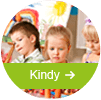Self-Regulation in Children
Self-regulation in children is a gradual learning process that ultimately results in what we might term “responsible adult behaviour”.
It is an important life skill and parents have a large part to play in assisting children to develop it.
What is self-regulation?
This is the process that allows us to control what we say and do based on many different factors. Just a summary of those might include:
- our awareness of the law, rules, and social conventions;
- the emotions we all experience such as anger, love, and grief;
- our desires and needs, such as hunger, thirst, success, removal of discomfort etc.;
- our empathy with others, considering how they may feel or be affected by what we do or say;
- the values we hold about right and wrong.
There are many other factors that we consider before acting or speaking. Much of this is an entirely sub-conscious process though most of us are also aware of the need to think first and act (or speak) later.
These abilities do not necessarily develop automatically. They mature in us as children and teenagers, partly by observation and social engagement with others around us and partly through teaching by parents and schools etc. Experts also believe there may be genetic factors that allow some people to self-regulate more easily than others.
This development is not necessarily spontaneous, inevitable, or complete. All of us have probably encountered someone we consider to be “selfish” or “inconsiderate”. In extreme cases, where self-regulation is largely or totally absent, the end result may be diagnosed in adulthood as sociopathy – something usually requiring extensive special treatment.
When does this process begin in children?
The exact age that self-regulation commences is debated and will vary between children but in younger babies it may be largely absent. They will basically cry, giggle, and get angry, as and when they are driven to do so by their needs.
Even at these early ages, some self-regulation is communicated by parents starting to help their baby to understand that there are times to play and times to sleep etc.
By the time children have reached toddler ages, self-regulation training becomes essential and this will continue into the teenage and young adult years.
Practising self-regulation training
In toddlers, this would include things such as:
- explaining when they have behaved badly and why;
- changing from the ‘on-demand’ parental service typically provided to babies to one which is more negotiated and conditional. That might include the use of treats for good considerate behaviour;
- talking to them about how others might feel if they are badly affected by the things we do without consideration;
- asking how they would feel if someone (e.g.) simply took one of their toys because they wanted it.
In older children of pre and early school ages, more rational explanations and self-analysis can be introduced. That could cover issues such as:
- analysing why they felt angry or lashed out in a particular situation;
- teaching them that anger and the instinctive reactions it generates, can be isolated and controlled;
- talking through examples of how bad things would be if everybody simply acted on their impulses without thought for the consequences for themselves and others;
- explaining that actions have consequences and uncontrolled actions often lead to unexpected and undesirable consequences;
- developing calming-down routines, such as ‘time outs’ to recover their composure if they are angry or upset.
By the time most children reach the age of 10-12, they should be capable of substantial self-regulation in their behaviours. This typically will not be achieved overnight and some parental patience is usually required in helping children to both understand and control their behaviours. There may be relapses and the need to revisit basic principles on a regular basis.
Unfortunately, just as most children have developed such skills, they will enter puberty and the rush of hormones can complicate the picture and require slightly different parental consequences. That is another subject!













